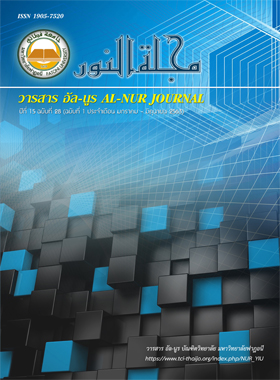SUPPORT CROSS-CULTURAL COMMUNICATION FOR MUSLIM TOURISTS IN SOUTH KOREA
Keywords:
Cross-cultural communication, Muslim tourists, Tourism, South KoreaAbstract
Worldwide, the number of Muslim tourists are increasing and have a high potential for spending. Therefore, many countries become more interested in Muslim tourists. This study aims to analyze the views of Korean and Malaysian scholars on the development infrastructure to support cross-cultural communication in order to prepare the tourism environment in South Korea to be the destination for Muslim tourists from around the world. This research conducted in-depth interviews with South Korean scholars and Malaysian Muslim scholars who taught and conducted researches on tourism communication or inter-cultural studies. This research used NVivo 10 qualitative research software for data analysis. The results of this study present that information preparation for tourism and English language development are needed. Besides, facilities that comply with religious conditions and the society that friendly to Muslim will help to improve cross-cultural communication. This research can be a guideline for policy suggestions to support Muslim tourism in South Korea. Therefore, this finding is expected to be useful for the development of cross-cultural communication in South Korea and other tourist destinations that require further development of tourism suitable for Muslims.
References
Atran, S., Medin, D. L., & Ross, N. O. (2005). The cultural mind: environmental decision making and cultural modeling within and across populations. Psychological review, 112(4), 744.
Baker, S. E., Edwards, R., & Doidge, M. (2012). How many qualitative interviews is enough?: Expert voices and early career reflections on sampling and cases in qualitative research. (National Centre for Research Methods Reviews) Southampton, GB: National Centre for Research Methods.
Battour, M., & Ismail, M. N. (2016). Halal tourism: concepts, practices, challenges and future. Tourism management perspectives, 19, 150-154.
Battour, M., Ismail, M. N., & Battor, M. (2011). The impact of destination attributes on Muslim tourist's choice. International Journal of tourism research, 13(6), 527-540.
Battour, M., Battor, M., and Ismail, M. N. (2012).The mediating role of tourist satisfaction: a study of Muslim tourists in Malaysia. Journal of Travel & Tourism Marketing, 29 (3):279-297.
Brinkmann, S., & Kvale, S. (2013). Interviews: learning the craft of qualitative research interviewing (3rd ed.). Thousand Oaks, CA: SAGE Publications Limited.
Castillo, M. M. (2016). Preparing for interview research: The interview protocol refinement framework. The Qualitative Report, 21(5), 811-831.
Chen, G. M., & Starosta, W. J. (2000). The development and validation of the intercultural sensitivity scale. Human Communication Research. 3, 1-15.
Choi, J. G., Tkachenko, T., & Sil, S. (2011). On the destination image of Korea by Russian tourists. Tourism Management, 32(1), 193-194.
Crescentrating. (2016). Defining what is halal travel or Muslim friendly tourism. Retrieved from https://www.crescentrating.com/magazine/9/muslim-travel.html.
Creswell, J. W. (2007). Qualitative inquiry and research design: Choosing among five approaches (2nd ed.). Thousand Oaks, CA: SAGE Publications Limited.
Creswell, J. W. (2014). Educational research: planning, conducting, and evaluating quantitative and qualitative research, London: Pearson Education Limited.
Euromonitor International (2015). Doing business in the Halal market: products, trends, and growth opportunities. Retrieved from http://go.euromonitor.com/white-paperbusiness-halal-market-products-trends-growth-opportunities.html.
Guest, G., Bunce, A., & Johnson, L. (2006). How many interviews are enough? An experiment with data saturation and variability. Field methods, 18(1), 59-82.
Henderson, J. C. (2010). Sharia-compliant hotels. Tourism and Hospitality Research, 10(3), 246-254.
Henderson, J. C. (2016). Halal food, certification and halal tourism: insights from Malaysia and Singapore. Tourism Management Perspectives, 19, 160-164.
Hilal, A. H., & Alabri, S. S. (2013). Using NVivo for data analysis in qualitative research. International Interdisciplinary Journal of Education, 2(2), 181-186.
Jackson, K., & Bazeley, P. (2019). Qualitative data analysis with Nvivo. Thousand Oaks, CA: SAGE Publications Limited.
Keyton, J. (2006). Communication research: asking questions, finding answers. New York, NY: North Carolina State University.
Kim, E. E. K., & Mattila, A. S. (2011). The Impact of language barrier & cultural differences on restaurant experiences: A grounded theory approach. MA: University of Massachusetts.
Kim, S., & Nam, C. (2016). Hallyu revisited: challenges and opportunities for the South Korean tourism. Asia Pacific Journal of Tourism Research, 21(5), 524-540.
Kirillova, K., Lehto, X., & Cai, L. (2015). Volunteer tourism and intercultural sensitivity: the role of interaction with host communities. Journal of Travel & Tourism Marketing, 32(4), 382-400.
Lee, H. E., & Choi, H. S. (2016). Improvements of the Korean tourism application, visit Korea, for foreigners-based on beacon functions. International Journal of Software Engineering and Its Applications, 10(4), 103-116.
Mohsin, A. (2014). Cross-cultural sensitivities in tourism: potentials for conflict and understanding. Transnational Corporations Review, 6(3), 304-310.
Na, W. (2014). Implications of development status of Korean cultural tourism for China. In 2014 Conference on Informatisation in Education, Management and Business (IEMB-14). Atlantis Amsterdam: Atlantis Press.
Razzaq, S., Hall, C. M., & Prayag, G. (2016). The capacity of New Zealand to accommodate the halal tourism market or not. Tourism Management Perspectives, 18, 92-97.
Reisinger, Y. (2009). International tourism: Cultures and behavior. Oxford, UK: Elsevier Inc.
Rubin, H. J., & Rubin, I. S. (2012). Qualitative interviewing: the art of hearing data (3rd ed.).
Thousand Oaks, CA: SAGE Publications Limited.
Sharifpour, M., Walters, G., Ritchie, B. W., & Winter, C. (2014). Investigating the role of prior knowledge in tourist decision making: a structural equation model of risk perceptions and information search. Journal of Travel Research, 53(3), 307-322.
Stevenson, A. (2014). Plastic surgery tourism brings Chinese to South Korea. The New York Times. Retrieved from https://goo.gl/GHoIZA (accessed February 1, 2017)
Yusof, S. M., & Shutto, N. (2014). The development of halal food market in Japan: an exploratory study. Procedia-Social and Behavioral Sciences, 121, 253-261.
Zhou, L. (2011). More than just “Hello” and “Nihao”: Exploring bars and intercultural communication in a touristic town, Yangshuo, China (Master thesis), University of Waterloo, Canada.



